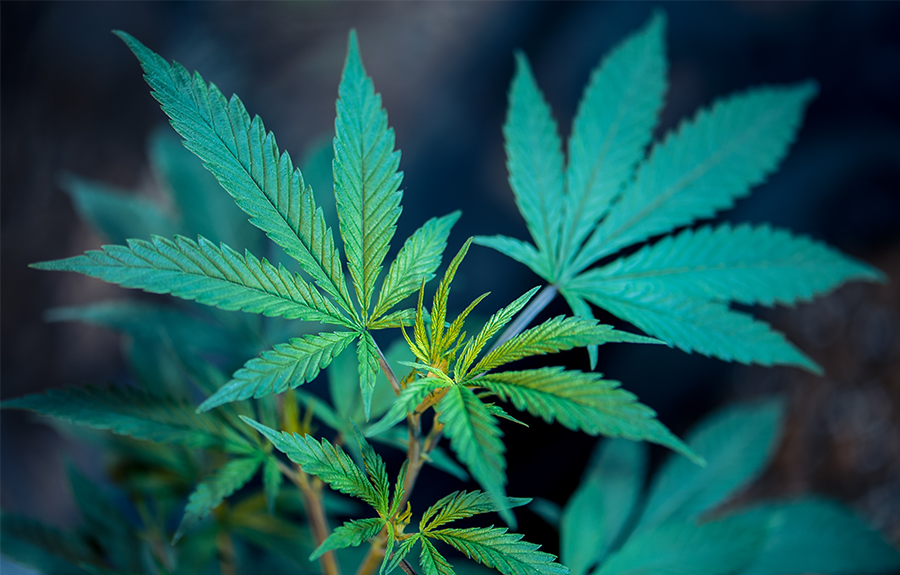Non-medical Cannabis Legislation and Sport
Feb 21, 2019

The Government of Canada legalized non-medical cannabis on October 17, 2018 under the federal Cannabis Act1. The B.C. Government has also passed legislation2 to provide for legal, controlled access to non-medical cannabis in British Columbia. It is important to note that while the federal legislation describes the federal laws around cannabis sale and possession, provinces and territories passed their own laws regulating the sale, possession, and use of cannabis.
The B.C. Cannabis Control and Licensing Act (CCLA)3:
- Sets 19 as the provincial minimum age to purchase, sell or consume non-medical cannabis;
- Allows adults to possess up to 30 grams of dried non-medical cannabis or its equivalent in a public place;
- Sets various restrictions on where non-medical cannabis can be consumed; and
- States a person must not supply non-medical cannabis or a cannabis accessory to a minor, or allow a minor to consume or possess non-medical cannabis at a place under the person’s control.
Under provincial legislation in British Columbia, smoking and vaping cannabis is not allowed in the following public places:
- Playgrounds, skating rinks, sports fields, skate parks, swimming pools and spray pools, or any decks or seating areas associated these outdoor places.
- In provincial parks, except in designated smoking areas,
- In regional and municipal parks, except in designated campsites.
- Public buildings, workplaces, or common areas of apartments, condos, or dormitories, and within six metres of air intakes, windows, and doorways attached to these places.
Under provincial legislation in British Columbia, consumption of cannabis in all forms (not just smoking and vaping) is not allowed:
- On school properties (K-12)
- On sidewalks and boulevards adjacent to school properties (K-12)
- In a vehicle, or on a boat while being operated, whether or not it is in motion.
Some exceptions exist for authorized use of medical cannabis. Additional information is available at Get Cannabis Clarity.4 Questions about legislation and regulations can be directed to the BC Government’s Cannabis Secretariat at cannabis.secretariat@gov.bc.ca
Cannabis in Sport Environments
Sport organizations may wish to review and appropriately update the following documents:
- Drug Free Policies and/or Code of Conduct
- Human Resource Policies
- Screening practices
- Sponsorship practices
Anti-Doping and Athletes’ Use of Cannabis
Athletes subject to the Canadian Anti-Doping Program6 (CADP) must be aware that legalization does not affect the status of cannabis in elite performance sport environments. The CADP adheres to the World Anti-Doping Agency’s Prohibited List7, which is an international standard under the World Anti-Doping Code. Despite Canada’s position on cannabis, the global anti-doping community maintains cannabis as a prohibited substance and a positive test can still result in a sanction. Cannabis may have therapeutic uses, but any medical use needs to be justified with a medical file and a medical exemption. For more information, visit the Canadian Centre for Ethics in Sport8 website.
Since not all sporting environments are subject to the CADP, organizations should be clear about their expectations of behaviours of athletes, coaches and officials within a Code of Conduct. The Code of Conduct should outline:
- If legal substances (such as alcohol, tobacco and cannabis) are prohibited.
- When and where those expectations apply (e.g. sanctioned events, any activities with minors present, etc.).
- Expectations when travelling with a team*
- Consequences of policy violation.
*Sport groups or individuals travelling between provinces may be subject to differing laws – particularly in terms of age of majority. See the Sport and Law Strategy Group’s5 chart on jurisdictional differences. Teams travelling to the U.S. and other countries should also be familiar with their laws concerning cannabis.
Workplace Substance Use & Impairment
Impairment from substance use can affect a person’s ability to work safely and can create a risk of injury to the impaired worker, co-workers and members of the public. Impairment can refer to the use of alcohol and drugs (including legal drugs) and it is not a new issue.
Sport organizations should consider how this applies to their policies and procedures as it relates to sport administrators, coaches, officials and any volunteers acting on behalf of the organization. If a policy already exists that references drug and alcohol use, ensure that it includes cannabis use.
WorkSafeBC9 outlines the following items that should be incorporated into policy:
- Individuals should not be allowed to work if they are impaired.
- Individuals should be required to inform their supervisor if their ability to safely perform is impaired for any reason.
- Individuals should inform their supervisor if they have concerns about a co-worker’s ability to safely perform work.
- Consequences of policy violations.
Special consideration may need to be given to medical cannabis use, just as it is given to use of any other potentially impairing medical treatment.
Screening
Cannaibis Sponsorship and Promotions
Helpful Links:
Please note that these websites and links are managed by government and non-government agencies – they are responsible for content.
- Federal Cannabis Act: https://laws-lois.justice.gc.ca/eng/acts/C-24.5/
- BC’s Approach to Cannabis Legalization: https://www2.gov.bc.ca/gov/content/safety/public-safety/cannabis/legalization
- Cannabis Control and Licensing Act, SBC 2018, c. 29: http://www.bclaws.ca/civix/document/id/bills/billscurrent/3rd41st:gov30-1
- Get Cannabis Clarity: www.getcannabisclarity.ca
- Sport and Law Strategy Group – Preparing Your Sport Organization: https://sportlaw.ca/preparing-your-sport-organization-for-legal-cannabis/
- Canadian Anti-Doping Program: https://cces.ca/sites/default/files/content/docs/pdf/cces-policy-cadp-2015-v2-e.pdf
- World Anti-Doping Association Agency’s Prohibited List: https://www.wada-ama.org/en/what-we-do/the-prohibited-list
- Canadian Centre for Ethics in Sport: https://cces.ca/cannabis
- WorkSafeBC – Substance Use & Impairment in the workplace: https://www.worksafebc.com/en/health-safety/hazards-exposures/substance-use-impairment
- BC Criminal Records Review Program: https://www2.gov.bc.ca/gov/content/safety/crime-prevention/criminal-record-check
- Government of Canada – Fact Sheet: the Cannabis Act – Promotion prohibitions: https://www.canada.ca/en/health-canada/services/drugs-medication/cannabi…
